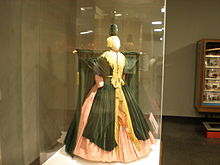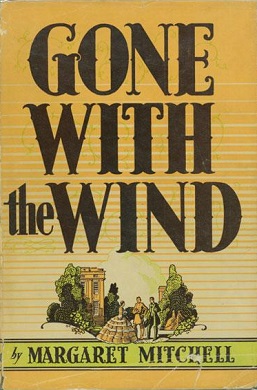
Gone with the Wind is a novel by American writer Margaret Mitchell, first published in 1936. The story is set in Clayton County and Atlanta, both in Georgia, during the American Civil War and Reconstruction Era. It depicts the struggles of young Scarlett O'Hara, the spoiled daughter of a well-to-do plantation owner, who must use every means at her disposal to claw her way out of poverty following Sherman's destructive "March to the Sea". This historical novel features a coming-of-age story, with the title taken from the poem "Non Sum Qualis eram Bonae Sub Regno Cynarae", written by Ernest Dowson.

Katie Scarlett O'Hara Hamilton Kennedy Butler is a fictional character and the protagonist in Margaret Mitchell's 1936 novel Gone with the Wind and in the 1939 film of the same name, where she is portrayed by Vivien Leigh. She also is the main character in the 1970 musical Scarlett and the 1991 book Scarlett, a sequel to Gone with the Wind that was written by Alexandra Ripley and adapted for a television mini-series in 1994. During early drafts of the original novel, Mitchell referred to her heroine as "Pansy", and did not decide on the name "Scarlett" until just before the novel went to print. PBS has called O'Hara "quite possibly the most famous female character in American history..."

George Ashley Wilkes is a fictional character in Margaret Mitchell's 1936 novel Gone with the Wind and the 1939 film of the same name. The character also appears in the 1991 book Scarlett, a sequel to Gone with the Wind written by Alexandra Ripley, and in Rhett Butler's People (2007) by Donald McCaig.

Rhett Butler is a fictional character in the 1936 novel Gone with the Wind by Margaret Mitchell and in the 1939 film adaptation of the same name. It is one of Clark Gable's most recognizable and significant roles.
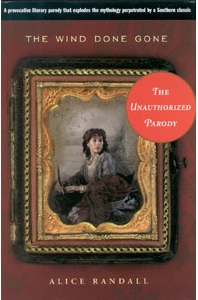
The Wind Done Gone (2001) is the first novel written by Alice Randall. It is a bestselling historical novel that tells an alternative account of the story in the American novel Gone with the Wind (1936) by Margaret Mitchell. While the story of Gone with the Wind focuses on the life of the daughter of a wealthy slave owner, Scarlett O'Hara, The Wind Done Gone tells the story of the life of slaves, Cynara, an enslaved woman during the same time period and events.
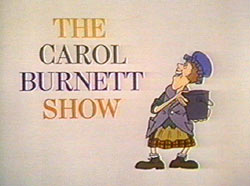
The Carol Burnett Show is an American variety/sketch comedy television show that originally ran on CBS from September 11, 1967, to March 29, 1978, for 279 episodes, and again with nine episodes in fall 1991. It starred Carol Burnett, Harvey Korman, Vicki Lawrence, and Lyle Waggoner. In 1975, frequent guest star Tim Conway became a regular cast member after Waggoner left the series. In 1977, Dick Van Dyke replaced Korman but it was agreed that he was not a match and he left after 10 episodes.

Mama's Family is an American sitcom television series starring Vicki Lawrence as Mama. The series is a spin-off of a recurring series of comedy sketches called "The Family" featured on The Carol Burnett Show (1967–78) and Carol Burnett & Company (1979). The sketches led to the television film Eunice, and finally the television series.
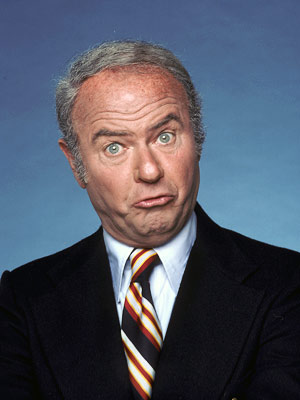
Harvey Herschel Korman was an American actor and comedian who performed in television and film productions. His big break was being a featured performer on CBS's The Danny Kaye Show, but he is best remembered for his performances on the sketch comedy series The Carol Burnett Show, for which he won four Emmy Awards, as well as his partnership with Tim Conway. Korman also appeared in several comedy films by Mel Brooks.
"As the Stomach Turns" is a series of comedy sketches parodying the soap opera As the World Turns featured on The Carol Burnett Show, with one installment airing on Carol Burnett & Company. The sketch was created by show writers Kenny Solms and Gail Parent. The Carol Burnett Show introduced the series during its first season in 1967–68 and continued to air new installments for the remainder of its 11-season run, through its final season in 1977–78. The final installment of "As the Stomach Turns" did not air until September 8, 1979, on a different four-week summer series titled Carol Burnett & Company. This was the only installment of "As the Stomach Turns" that did not air on The Carol Burnett Show, which completed its run almost a year and a half earlier on March 29, 1978.
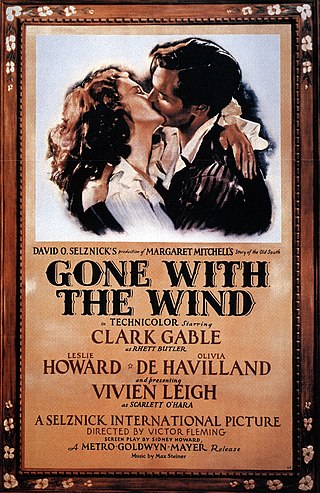
Gone with the Wind is a 1939 American epic historical romance film adapted from the 1936 novel by Margaret Mitchell. The film was produced by David O. Selznick of Selznick International Pictures and directed by Victor Fleming. Set in the American South against the backdrop of the Civil War and the Reconstruction era, the film tells the story of Scarlett O'Hara, the strong-willed daughter of a Georgia plantation owner, following her romantic pursuit of Ashley Wilkes, who is married to his cousin, Melanie Hamilton, and her subsequent marriage to Rhett Butler.

Robert Gordon Mackie is an American fashion designer and costumier, best known for his dressing of entertainment icons such as Lucille Ball, Carol Burnett, Diahann Carroll, Carol Channing, Cher, Bette Midler, Doris Day, Marlene Dietrich, Barbara Eden, Lola Falana, Farrah Fawcett, Judy Garland, Mitzi Gaynor, Liza Minnelli, Marilyn Monroe, Marie Osmond, Lynn Anderson, Diana Ross, Tina Turner, Julia Louis-Dreyfuss, Barbra Streisand, and Dottie West among others. He was the costume designer for all the performers on The Carol Burnett Show during its entire eleven-year run. For his work, Mackie has received nine Primetime Emmy Awards, a Tony Award, and three nominations for the Academy Award for Best Costume Design. In April 2023, Mackie was awarded with the inaugural Giving Us Life-time Achievement Award by RuPaul at the RuPaul's Drag Race Season 15 finale.
"Frankly, my dear, I don't give a damn" is a line from the 1939 film Gone with the Wind starring Clark Gable and Vivien Leigh. The line is spoken by Rhett Butler (Gable), as his last words to Scarlett O'Hara (Leigh), in response to her tearful question: "Where shall I go? What shall I do?" Scarlett clings to the hope that she can win him back. This line is slightly different in Margaret Mitchell's 1936 novel Gone with the Wind, from which the film is derived: "My dear, I don't give a damn."
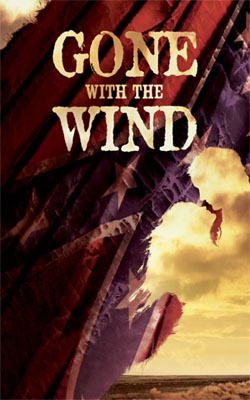
Gone with the Wind is a musical written by Margaret Martin. It is adapted from Margaret Mitchell's 1936 novel of the same name and its 1939 film adaptation by Trevor Nunn.

The Scarlett O'Hara War is a 1980 American made-for-television drama film directed by John Erman. It is based on the 1979 novel Moviola by Garson Kanin. Set in late 1930s Hollywood, it is about the search for the actress to play Scarlett O'Hara in the much anticipated film adaptation of Gone with the Wind (1939). This film premiered as the finale of a three-night TV miniseries on NBC called Moviola: A Hollywood Saga.
Carol, Carl, Whoopi and Robin is a comedy variety television special which aired on February 10, 1987 on ABC. It starred Carol Burnett, Carl Reiner, Whoopi Goldberg and Robin Williams. Burnett served as the host of the one hour long spinoff special from her variety series The Carol Burnett Show featuring the guest stars, Reiner, Goldberg, and Williams. The special received positive reviews praising the performances of the comedians, and received a Primetime Emmy Award for Outstanding Individual Performance In A Variety Or Music Program for Robin Williams' performance in the special.

Marcella Martin was an American actress, remembered for her role as Cathleen Calvert in Gone with the Wind (1939).
"A Special Evening with Carol Burnett" is the two-hour series finale of the American variety/sketch comedy television show The Carol Burnett Show. It is the 279th overall episode of the show and the 24th episode of the eleventh and final season which aired on CBS on Wednesday, March 29, 1978 from 8:00 to 10:00 p.m. EST.

In Such Good Company: Eleven Years of Laughter, Mayhem, and Fun in the Sandbox is a 2016 memoir by Carol Burnett, which, in its audio form, earned Burnett a Grammy Award for Best Spoken Word Album. The memoir tells the behind-the-scenes story of The Carol Burnett Show.
"Cinderella Gets It On!" is a musical comedy sketch featured on the 12th episode of the 9th season of The Carol Burnett Show. It originally aired in the United States on CBS on November 29, 1975, and is an adaptation of Charles Perrault's folk tale Cinderella that is set in the 1970s disco era. The sketch was written by Gary Belkin and Roger Beatty and featured music composed by Arthur Malvin. The sketch was directed by Dave Powers.

